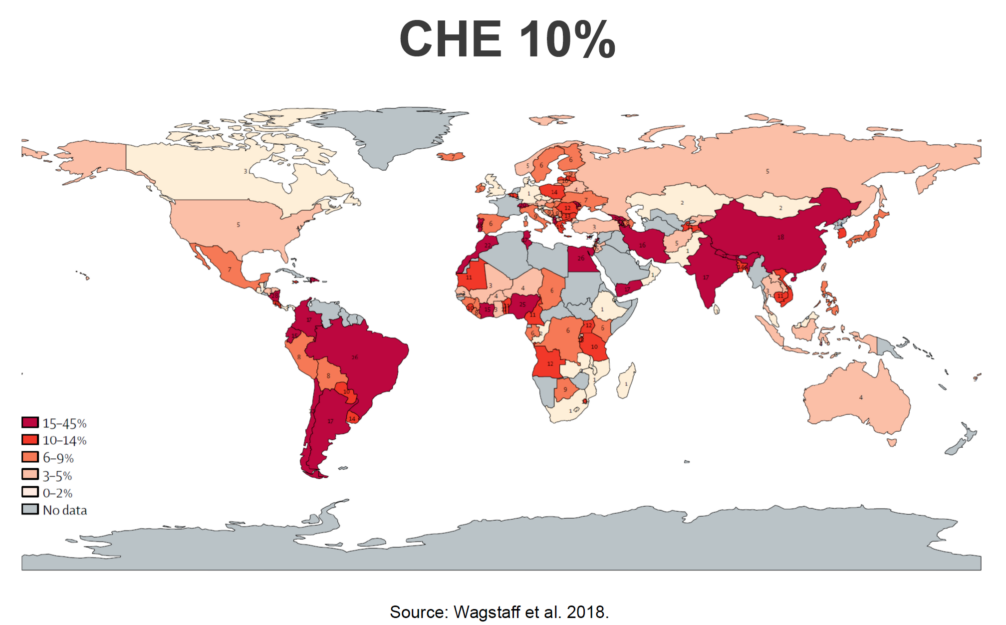Overview
Protection from the financial risks of healthcare costs is a key aim of health systems. When financial risk protection is poor, high healthcare costs may result in families foregoing basic needs like education, food and housing, or otherwise be pushed into poverty. Health insurance and government subsidies for healthcare are some of the key strategies used to ensure financial risk protection, but their effectiveness can vary depending on the health system and policy design.
This session will provide an introduction to measuring and assessing financial risk protection. It will cover in depth the standard metrics used for financial risk protection and the data and methods used to assess this measure of health system performance. We will compare performance across countries and interpret the strengths and weaknesses of different indicators and data used to measure and understand financial risk protection.
The session will have a special focus on the large datasets capturing financial risk protection available in the Indian context and how they do and do not lend themselves to effective measurement. Gaps in existing datasets and the kind of data that could be useful to address these gaps will also be covered.
This session is designed for participants with research experience in public health, health systems, health policy, and health services. Familiarity with national datasets and experience with statistics and quantitative analysis is preferred.
Reading
- Wagstaff, A., Flores, G., Hsu, J., Smitz, M.-F., Chepynoga, K., Buisman, L. R., van Wilgenburg, K., & Eozenou, P. (2018). Progress on catastrophic health spending in 133 countries: A retrospective observational study. The Lancet Global Health, 6(2), e169–e179. https://doi.org/10.1016/S2214-109X(17)30429-1
Experience This Session
- View presentation slides here: HSA Session 2.
- Watch seminar session here.
